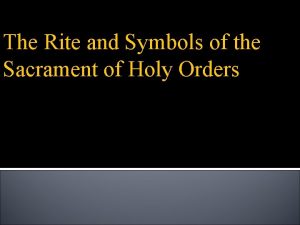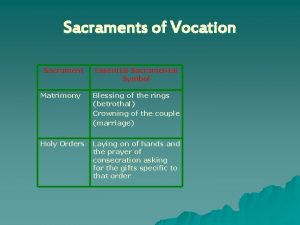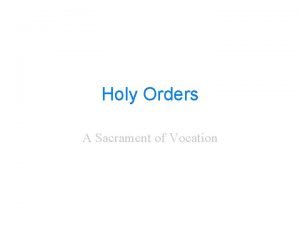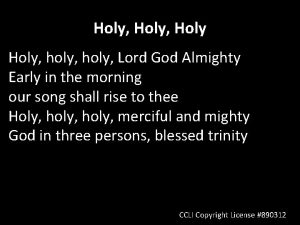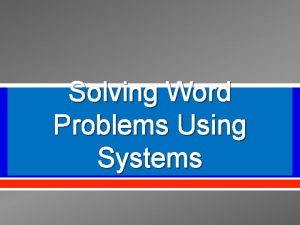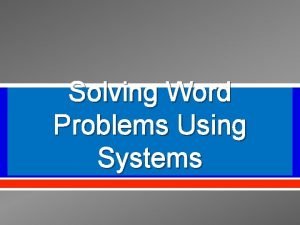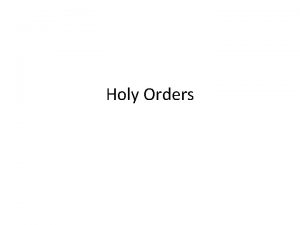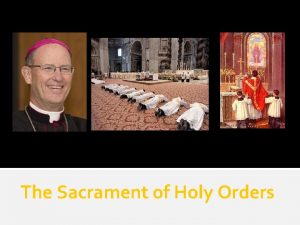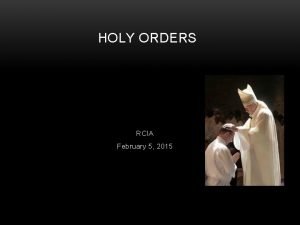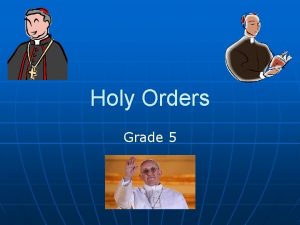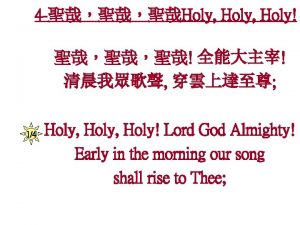Holy Orders A Sacrament of Vocation What is









- Slides: 9

Holy Orders A Sacrament of Vocation

What is a Vocation? • A calling from God • Asks the question…where is God calling me to be? Who is God calling me to be? • A vocation is not limited to priests and religious.

Holy Orders as a vocation • Sacrament of Service • The sacrament of Holy Orders celebrates a person’s vocation to follow God and be a role model of the faith. • People can be ordained as Priests, Bishops, Deacons.

Based on Jesus • Holy Orders celebrates the ministry of Jesus as. . • Priest • Prophet • Servant- Leader

Priest • Jesus was viewed as the High Priest of the faith. • Jewish High Priests were responsible for offering sacrifices…Jesus offered Himself as the ultimate sacrifice for us. • This is the basis of the Eucharist, and this is why only ordained Priests may consecrate the bread and wine.

Prophet • A prophet is someone who reminds people about God and the way of God. • Jesus was the ultimate prophet, and this is why we say that those receiving Holy Orders are continuing the prophetic voice of Jesus.

Servant-Leader • Jesus was, as St. Ignatius said, “ A man for others. ” • He did not care about fame, power, glory, money, etc. • He cared about always putting others before Himself and living according to His Father. • He led people by serving them. This is what we are called to do.

3 Orders • Laying on of hands—communicates empowerment by the Spirit and a solemn prayer. • Bishop—head anointed with oil, they are given a ring, a miter (Bishop’s hat), a shepherd’s staff • Priests—anoint hands with oil, presented with a paten and chalice, signs of their role within the Eucharist • Deacons—receive a book of Gospels, a symbol of their ministry of preaching

Functions of the Ordained • Bishop- successors of the Apostles, Bishops perform all priestly functions as well as diocesan governance. • Priest- lead worship and sacraments, teach, minister to community (usually a parish). • Deacon- help bishops and priests carry out their duties including: proclaiming the Gospel, assisting with Eucharist, presiding at baptisms, marriages, and funerals and many other works of charity and compassion.
 O sacrament most holy oh sacrament divine
O sacrament most holy oh sacrament divine Symbol for holy orders
Symbol for holy orders Sacrament of vocation
Sacrament of vocation The vocation sacraments are
The vocation sacraments are Sacrament of vocation
Sacrament of vocation Holy holy holy lord god almighty
Holy holy holy lord god almighty You are holy lord of heaven and earth
You are holy lord of heaven and earth Casey orders 3 pizzas and 2 orders of breadsticks
Casey orders 3 pizzas and 2 orders of breadsticks Casey orders 3 pizzas and 2 orders of breadsticks
Casey orders 3 pizzas and 2 orders of breadsticks Casey orders 3 pizzas
Casey orders 3 pizzas

